Drupal Development Company
Drupal Development Services

Portals & Platforms That Perform At Scale
Many businesses rely on platforms that look fine on the surface but fail when it comes to performance, flexibility, and long-term growth. Slow load times, clunky content workflows, and poor third-party integrations drain productivity. Temporary fixes might patch issues for now, but they don’t solve the bigger problem.
Drupal changes that. It’s an enterprise-grade, open-source CMS built for high-performance websites and complex digital experiences. With flexible content structures, native multilingual and multisite support, and the option for headless architecture, Drupal isn’t just a content tool — it’s a scalable foundation for growing businesses.
At Codewave, we design tailored Drupal solutions around your business needs — whether it’s launching a new website, upgrading to Drupal 10, or modernising a legacy system.
Here’s what we bring to the table:
- Headless-ready setups: For projects that need front-end flexibility, we configure decoupled Drupal backends with React or Vue front-ends.
- Performance-first engineering: Server-side rendering and lazy loading help improve speed and search rankings.
- Responsive, future-proof layouts: We use CSS Grid and Flexbox for layouts that perform consistently across all devices.
- Real-time system sync: APIs keep your Drupal backend connected with other platforms for instant data updates.
- Micro-frontend workflows: Teams can deploy features independently without affecting core site stability.
- Accessibility built-in: Every site meets WCAG guidelines from the start — accessibility is never an afterthought.
We work as an extension of your team, setting clear priorities, sharing daily updates, and moving fast with strict quality checks at every step. If you’re ready for a Drupal website that performs, scales, and delivers real value, we’re ready to help.

Get Codewave’s Drupal Brilliance.
Page Load Time
Under 2s
Mobile Responsiveness Score
95/100 or higher
API Integration Time
< 1 week for standard tools
Download The Master Guide For Building Delightful, Sticky Apps In 2025.
Build your app like a PRO. Nail everything from that first lightbulb moment to the first million.
From Frontend to Backend - Drupal That Delivers
Your Drupal site loads in under 2.5 seconds, ranks higher with optimized Core Web Vitals, and retains 30% more users. We remove bloat, streamline performance, and deliver a backend as strong as the visuals.
If your website is hard to manage, doesn’t scale, or struggles to integrate with tools like CRMs, booking systems, or internal databases, you’re facing common challenges. At Codewave, we build custom Drupal websites that address these issues with a complete solution—combining user-friendly design and a powerful, scalable backend.
We start by understanding your workflows, content priorities, and team roles. This helps us create an intuitive front-end and a back-end that supports your business needs. Using Drupal’s custom content types, views, and access controls, we build a website that grows with you.
We automate content publishing and approval processes to save time and reduce errors. With Composer and Drush, we ensure updates and deployments are simple and secure. We also integrate your website with CRMs, booking systems, and other tools via custom APIs, reducing manual work and improving accuracy.
Example: If a university uses a custom Drupal website to manage content across various departments. The platform will feature unique dashboards for each department, role-based access for editors, and an intuitive content approval workflow. The platform will integrate smoothly with student information systems and other internal tools, simplifying content management for both administrators and users.
Most Drupal themes look good on demo but fall short in real-world use. They’re bloated with unnecessary code, hard to customize, and often break across devices, slowing your site down and blocking non-tech teams from updating content easily.
We build custom Drupal themes that align with your brand, work seamlessly across devices, and support fast, intuitive content publishing. We start by understanding your business structure, who your users are, what they expect to see, and what your internal teams need to manage daily. Based on this, we design a component system with Twig templates that ensure consistency across every page.
Your team will get a Pattern Lab-powered design system, where every button, block, and layout can be previewed before it goes live—reducing back-and-forth between teams. We also optimize for speed and responsiveness: removing unused CSS, compressing assets, and building mobile-first layouts that perform well even on low bandwidth.
Example: A healthcare nonprofit will be able to create landing pages for vaccination drives and donation campaigns using pre-built drag-and-drop blocks. Their communication team can update banners, forms, and event content without any developer support—reducing turnaround time from two days to under an hour.
Off-the-shelf Drupal modules rarely cover edge-case needs. Whether it’s a missing approval flow, a disconnected dashboard, or a manual process eating up team hours, these gaps slow down operations and frustrate users.
We build custom Drupal modules tailored to your business logic. We begin by mapping the exact workflow or functionality you need, be it role-based content approvals, on-the-fly content creation, or third-party API triggers. Using Drupal’s Plugin system, Hooks, and Services architecture, we develop fully integrated modules that plug into your existing site without breaking views, permissions, or content types.
Each module is built for long-term maintainability: version-controlled with Composer, tested in an isolated sandbox environment, and deployed using configuration-based setups—so your team can update or scale features without code changes or downtime.
Example: A fintech platform will need a custom loan eligibility calculator built into Drupal. The module will generate dynamic repayment plans based on user inputs, instantly publish content, and auto-notify internal teams, reducing manual intervention and improving customer turnaround time significantly.
Manually copying data between Drupal and other tools slows teams down and creates room for errors. Whether it’s leads not syncing to your CRM or product orders missing from your ERP, disconnected systems waste time and hurt productivity.
We build seamless, secure integrations between Drupal and platforms like Salesforce, Zoho, SAP, HubSpot, and more. We begin by mapping exactly what data needs to move and when, like turning form submissions into qualified leads, syncing user data to your CRM, or pushing content updates to external systems. We use Drupal’s Migrate API, queue workers, and custom REST endpoints to automate this data flow without disrupting existing workflows.
Every integration is tested in a full staging environment, secured using OAuth 2.0 or API key-based authentication, and designed to match your platform’s data structure. Your Drupal team works as usual—only now, data syncs across systems in real time, without manual effort or delays.
Example: An edtech company will integrate their Drupal course catalog with Zoho CRM. Every new inquiry will auto-convert into a structured CRM lead, tagged by course type and region, and instantly routed to the right sales rep, cutting down lead response time.
Migrating from legacy CMS platforms often leads to broken links, data mismatches, and content downtime. Businesses risk losing valuable SEO equity, user history, and operational continuity if the process isn’t structured with care.
We provide end-to-end Drupal migration services that preserve your data integrity while simplifying future maintenance. We start by auditing your current CMS—be it Sitecore, WordPress, Joomla, or custom-built, mapping its content types, URL structures, user roles, and taxonomies. From there, we create a Drupal-first architecture that not only mirrors existing relationships but improves backend usability and editorial workflows.
Using Drupal’s Migrate API, we extract, clean, and batch-import content—including media files, meta tags, redirects, user roles, and structured data. All migrations are tested in a sandbox environment to prevent downtime, and are version-controlled to allow rollback if needed. The result is a clean, fully-functional Drupal site ready for scale and long-term stability.
Example: An insurance enterprise will migrate from Sitecore to Drupal. Their policy document repository, agent login portals, and dashboard interfaces will be rebuilt within Drupal, preserving access control and historical records without interrupting claims or internal processes.
Building a successful e-commerce store requires more than just displaying products. It demands a system that handles complex product catalogs, real-time inventory updates, secure payments, and personalized customer experiences. We specialize in developing custom Drupal-based e-commerce websites that deliver scalable, efficient, and user-friendly shopping experiences.
We start by defining a clear product taxonomy, including variants, stock rules, and pricing models, ensuring your catalog is easy to manage and grow. Drupal Commerce entities are used to create a flexible catalog that adapts to your business needs.
We integrate payment gateways like Stripe and Razorpay for secure, seamless transactions, and implement custom checkout flows with discount logic, order tokens, and automated address validation, tax rules, and shipment tracking using Commerce modules and REST APIs.
To provide full control, we set up role-based access for managing inventory, sales reports, and order tracking. This ensures your team can efficiently handle tasks while maintaining clarity and control in the admin interface.
Example: Imagine if a fashion brand launches a Drupal-powered store where product bundles, flash sales, and personalized carts are managed with rule-based triggers. Order data is automatically sent to their ERP system for fulfillment, improving operational efficiency and reducing manual intervention.
Speed isn’t just a UX factor, it impacts SEO, bounce rates, and conversions. We specialize in optimizing Drupal websites for maximum performance. We begin with comprehensive performance audits using tools like Lighthouse and New Relic, identifying issues such as render-blocking assets, slow database queries, and inefficient modules that hinder site speed.
On the server side, we implement advanced caching solutions like Redis or Varnish and fine-tune PHP-FPM to speed up request handling and reduce server load. For front-end performance, we use techniques like lazy-loading for media, bundling assets with Webpack, and deferring non-critical JavaScript to improve page load times. For content-heavy pages, we utilize BigPipe to stream visible content first, reducing time-to-interaction and enhancing the user experience.
Example: A media company with high traffic can adopt BigPipe and Redis caching for its Drupal site. Article pages can load instantly, even during peak traffic, with visible sections rendered before user interaction, significantly improving user engagement and reducing bounce rates.
A live Drupal site requires constant attention to ensure security, performance, and stability are maintained. At Codewave, we provide continuous support with version-controlled update workflows using Composer to keep core and contributed modules up-to-date and secure without causing downtime.
We implement automated monitoring using tools like UptimeRobot and Loggly to detect issues early, such as CPU spikes, broken links, or failed cron jobs. Regular audits ensure config splits are clean across development, staging, and production environments, while scheduled backups protect your site’s data and ensure business continuity.
Example: If an NGO’s Drupal site receives monthly security updates, uptime monitoring, and real-time alerts. Even during traffic surges from campaigns, the site will remain secure and responsive, with no developer intervention needed.
Strategic Advantages of Drupal
Drupal handles large volumes of content, multiple user roles, and complex workflows with ease. Codewave structures your platform so it’s easy to manage and ready for scale.
Whether it’s a CRM, ERP, or marketing platform, Drupal connects smoothly with the tools you already use. We build secure, API-ready integrations that keep your data moving without manual work.
Drupal’s security features meet enterprise standards. Codewave configures permissions, roles, and audit trails so your content and user data stay protected—internally and externally.
Need content on web, mobile, or kiosks? With a decoupled Drupal setup, your backend powers all your channels without slowing teams down. We ensure editorial workflows stay efficient.
Drupal has no license fees and is built to last. Codewave sets up Composer-based updates, modular architecture, and clean deployments, so you avoid rebuilds and keep costs low.
If you manage multiple brands, markets, or regions, Drupal’s multisite feature allows shared code with individual control. We design governance frameworks that simplify operations at scale.
Custom Drupal development, minus the drama.
Tools That Power Drupal to Its Full Potential
We use tools that maximize Drupal’s capabilities – automating complexities, enhancing collaboration, and speeding up delivery. Our tech stack is carefully selected for performance, reliability, and scalability, ensuring every build is optimized, efficient, and ready for the future.
| Category | Tools/Technologies |
| Project Management & Collaboration |
|
| Version Control & CI/CD |
|
| Frontend Development |
|
| Backend Development |
|
| Testing & Quality Assurance |
|
| Drupal Module Development |
|
| Performance Optimization |
|
| Security & Compliance |
|
| Cloud & Hosting |
|
| SEO & Digital Marketing |
|
Drupal That Understands Your Business.
From hospitals to marketplaces, our Drupal solutions are built to fit your world. We get the nuances, the pace, and the pressure of your industry, and craft platforms that don’t just work, but work like they belong.
| Healthcare | Drupal powers secure, customizable systems for healthcare providers. We build platforms that manage patient records, appointment scheduling, and telemedicine, ensuring easy access and data security. Example: A hospital website built on Drupal integrates patient scheduling, medical records management, and telehealth video calls, ensuring data security and seamless access for doctors and patients. |
| Transportation | Drupal powers fleet management and real-time tracking solutions, allowing businesses to monitor vehicle locations, optimize routes, and provide live traffic updates. Example: A transportation company uses Drupal to create a dashboard that tracks real-time vehicle locations and automatically suggests the best routes, reducing delays and improving delivery efficiency. |
| Retail | Drupal enables e-commerce stores with seamless integration of product catalogs, payment systems, and customer management. We enhance the shopping experience with personalized features and smoother transactions. Example: An e-commerce retailer uses Drupal to create a personalized shopping experience, where customers can filter products based on preferences, view detailed product information, and track orders. |
| Education | Drupal powers education platforms by providing customizable course management, student portals, and e-learning features. Custom content types and modules support various educational needs. Example: A university uses Drupal to manage online courses, grades, and student profiles, offering a comprehensive system for students and faculty to track progress and engage in learning. |
What to expect
What to expect working with us.
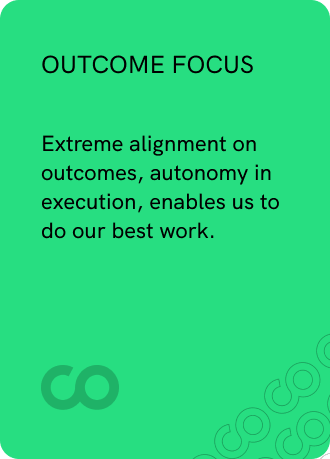
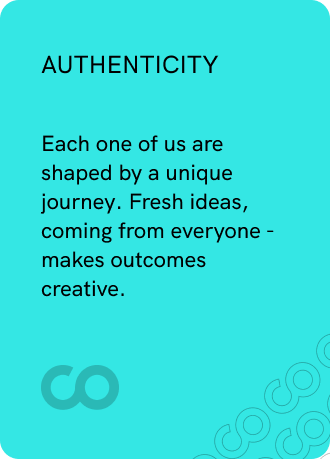
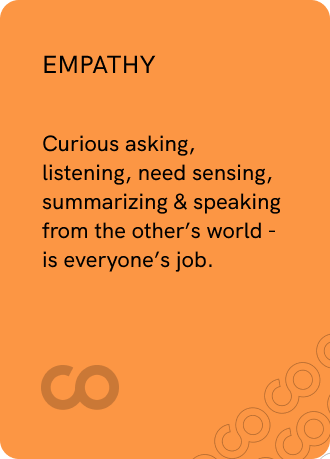
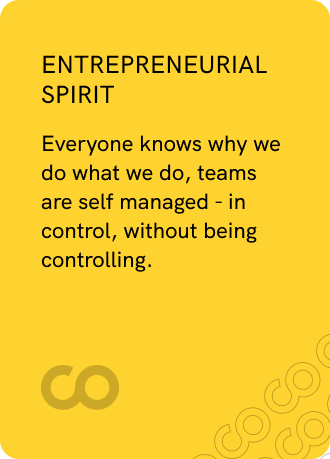
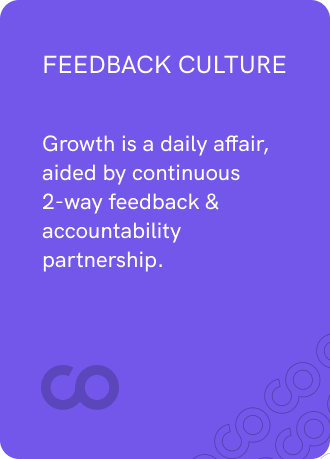

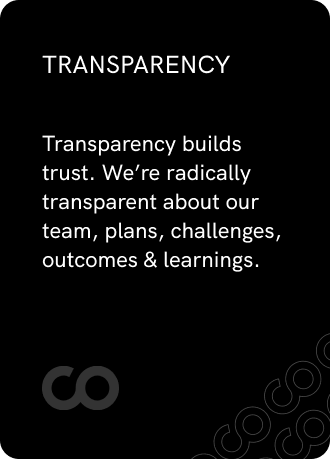
We transform companies!
Codewave is an award-winning company that transforms businesses by generating ideas, building products, and accelerating growth.
Frequently asked questions
Drupal is an open-source CMS that supports custom websites, applications, and portals. Businesses use it for flexibility, security, and control over content. It’s ideal for complex, large-scale platforms with custom workflows and user roles.
Drupal allows deeper customization, better access control, and more structured data handling. It suits enterprise needs where security, scalability, and integrations matter more than quick setup or plugins.
Yes. With Drupal Commerce, you can build custom online stores with advanced product filters, payment gateways, and tax configurations. It supports scalable inventory, multilingual product catalogs, and personalized checkout flows.
Drupal supports over 100 languages and offers built-in modules for translation and localization. You can manage region-specific content, user preferences, and workflows easily, without depending on third-party tools.
You can host Drupal on cloud platforms like AWS, Google Cloud, or Azure. It works well with Docker, Kubernetes, and CI/CD tools, supporting auto-scaling, high availability, and DevOps workflows.
Codewave builds fully customized Drupal solutions that work across use cases—portals, intranets, commerce, or enterprise systems. The team gets into specifics, from field-level custom content types to cloud-native deployments.
Codewave audits existing systems, maps data structures, and migrates legacy CMS platforms to the latest Drupal version. It uses Migrate API and Drush for clean, efficient, low-risk transitions, without interrupting business operations.
Yes. Codewave uses RESTful APIs, JSON:API, and contributed modules to connect Drupal with Salesforce, SAP, or any ERP. It ensures secure, real-time data flow and configures error handling into the pipeline.
Absolutely. Codewave uses Drupal as the backend and integrates it with React or Angular frontends. This setup works well for omnichannel content delivery, apps, wearables, kiosks, or any decoupled interface.
Codewave uses tools like Varnish, Redis, and New Relic to monitor and improve performance. It configures caching, minimizes API latency, and uses load testing to check if the system holds under pressure.
The team starts with use-case mapping, then builds custom modules using Drupal APIs. Each module is tested via PHPUnit and integrated into the project repo with CI/CD pipelines for faster releases.
Codewave performs regular vulnerability scans using tools like OWASP ZAP and Drupal’s security advisories. It writes secure code, manages user roles tightly, and patches modules quickly to avoid breaches.































































